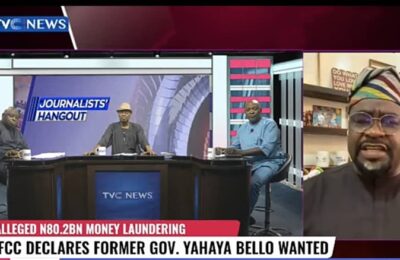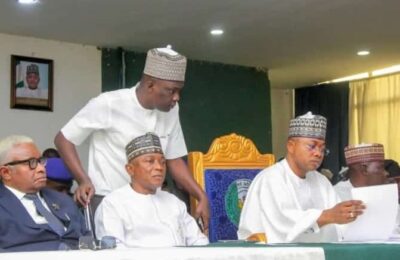The recall process purportedly initiated by the people of Kogi West senatorial district has reinforced the need to educate Nigerians on their power of recall and the sanctity of the process of recalling elected public officials AGBO-PAUL AUGUSTINE examined the contentions of stakeholders on the power of the electorate in a recall process.
Worried by the way and manner the recall process of Senator Dino Melaye, a member of the Nigerian Senate, representing Kogi West has generated profound interest around the country, some stakeholders saw the need to further elucidate the subject matter regarding the constitutional role of the power of the electorate devoid of interference.
Although, never in the political history of Nigeria has a recall of an elected public official been tested to its constitutional conclusion, stakeholders are concerned following development in the polity of the attempts by the people of Kogi West senatorial district to test their constitutional rights in recalling their senator.
Rising from a roundtable forum organised by Alliance for Credible Election (ACE) and Coalition for Democracy and Credible Election (CODECE) in Abuja recently, the coalition of Civil Society group is worried that often in Nigeria, after election, everything goes quiet until the next election, leaving the electorate with no inputs in governance whether good or bad leaders are elected.
Setting the issue in motion, was the keynote speaker and erudite political scientist, Prof Samuel Egwu, who spoke on Recall as an Important Tool in Promoting Good Representation and Accountable Governance; Some Comments and Suggestions.
The Political Scientist told his guests that the responsibility of the Independent National Electoral Commission (INEC) in Nigeria’s electoral democracy goes beyond conducting elections that are free and fair; it also includes promoting sound knowledge of democratic society that enable citizens understand the realisation of the true essence of democracy beyond elections.
At the core of democratic politics and representative democracy, “is the right of citizens to enforce political accountability, and to ensure that elected public officials in both the executive and the legislature are accountable to the electorate. Provisions relating to recall of legislators represents attempt to promote political accountability in the legislature”.
Dissecting the issue, Egwu said the real challenge of political accountability comes after the four -year ritual of elections or in-between elections, where the poverty of electoral democracy comes into bold relief. Politicians, including parliamentarians, make lofty promises during electioneering campaigns and disappear from communities once the election is over. If a recall exercise is framed in this regard, it can advance democracy, because the African reality is that politics is very local.
However, in some cases, he said demands made by constituents or what they often consider as democracy dividends is not the fulfillment of electioneering promises, but attending to their personal needs and solicitations. What this means is that constituents can frame their frustrations in terms of inability of parliamentarians to meet these narrow demands.”
“There are concerns that despite the good intentions of the authors of the 1999 constitution to deepen democracy and political accountability through the process of recall, it has not been successfully tested by the Nigerian electorate. While it is in a sense the equivalent of impeachment of elected executive officials, it bears strong resemblance to ‘direct’ democracy in the sense that it involves direct citizen action and agency.”
“We have seen the powers and efficacy of using referendum to enforce public accountability in other democracies. For instance, in the United States of America, referendum is a political accountability mechanism invoked at state and local levels to sanction elected public officials. On October 7, 2003, for example, the Governor of California, Gray Davis, was removed because if his unpopular policies in a special election and replaced by Hollywood Star, Arnold Schwazenegger, because they did not like his policies, among other political reasons. As in the process of recall, it starts with a citizen’s petition and a stipulated number of the people (or a percentage of the voters) would sign the petition for it to be successful.”
“In Nigeria, the submission of a petition believed to have been signed and supported by people from Kogi West senatorial district for the recall of Senator Dino Melaye, has once more helped to draw attention to the issue of recall through referendum of elected law makers at both federal and state levels”, he said.
Explaining further, he said Section 69 of the Nigerian Constitution addressed recall for senators, members of the House of Representatives and members of the Houses of Assembly at the state level.
However, there are concerns that when recall efforts that gain traction are those in which there are external forces and influence other than the genuine desire of the electorate. Taking a leap into the history books, Egwu highlighted, for instance, the differential attitude of INEC to moves for the recall of Senator Nasir Mantu and Hon Simon Lalong in 2005 which was perceived to be a function of external interest and forces.
INEC then went ahead to conduct a referendum for the recall of Hon Simon Lalong, despite a court order restraining it from so doing, although, he survived the recall having polled 74 per cent of the total 41,859 votes to defeat those who wanted him to be recalled.
The treatment was different from that of Mantu who allegedly, engaged in “anti-people” activity arising from his purported role in the tenure elongation ambition of President Olusegun Obasanjo. On 14 December 2005, the Plateau Central senatorial district, led by Chief Joseph Din, a businessman, submitted a petition to INEC seeking Mantu’s recall.
His petition was accompanied with 208,000 signatures and thumbprints. When INEC fixed the verification of signatures for 4 March 2006, a Federal High Court in Jos ruled against the move. Although the court order was vacated on 15 March to pave way for the exercise, the matter dragged until the defeat of the third term agenda. What this again means is that, the politics of recall may be decided by political forces external to constituents.
The ongoing contestations in what is believed to be efforts of the electorate of Kogi West to recall Senator Dino Melaye draws attention to the complex politics that a recall exercise involves. Some have put the blame on Governor Yahaya Bello of Kogi State for oiling the wheels of Kogi West recalling process of embattled Senator Dino Melaye. That is yet to be proved beyond doubt.
Egwu posited that: “We need to give effect to the recall provisions in the Nigerian constitution by making it a core issue of advocacy and citizens’ awareness and mobilisation. It can promote the direct involvement of citizens in building enduring democracy, keep parliamentarians on their toes and force parliaments as institutions to take their core mandate seriously. This core mandate can be located in their functioning as institutions of both horizontal and vertical accountability”.
He said there is the need to go beyond the rituals of elections as important as it is as a procedural dimension of democracy, and begin to focus on issues of governance in between elections.
Some ways of measuring governance he said include varieties of town hall meetings, tracking budget performance, and rendering public resource management more transparent. Making possible recall of parliamentarians who fail in their core mandate is a key element.
The problem however is how to ensure that recall provisions are not hijacked by genuine interests other than that of constituents. Recall can be politically instigated, or when genuinely demanded by constituents, can be defeated by powerful political interests.
There are two things that must be done: To create public awareness and citizen education around the constitutional provisions including the democratic value of invoking these provisions; and support constitutional reform around ensuring a balance between a very cumbersome recall process as it is today, and a simplified process that it is not open to abuse. It remains a mystery that massive signatures of constituents can be obtained in one week in this country,” Egwu worried.
Above all, it requires a concerted programme of social mobilisation. Social mobilisation is the process through which local, national (and sometimes global) actors collectively engage to claim and create spaces for participation. These are popular/informal spaces where civil society actors come together of their own initiatives to channel un-recognised demands, protest, or provide services.
Human rights lawyer and national president, Committee for the Defence of Human Rights (CDHR), Malachy Ugwummadu, in his submission on the Intervention On The Power Of Voters To Recall Representatives, said removal of a member of the National Assembly through the process of recall is pure democracy at work as it is clearly people-based and driven.
According to the rights activist, the constitution has empowered the electorate within a constituency to initiate the removal or recall of a national assembly member representing a particular constituency who no longer enjoys the confidence of the electorate.
He said the condition that could activate a recall process includes among others as the lone ground provided under the 1999 CFRN (as amended) is the loss of confidence in the legislative member by electorates of his constituency. These include: Corruption, abuse of office, Incompetency, poor judgment and discretion, dereliction of duties, misappropriation of public funds, insensitivity and disregard for established by laws and procedure, and violation of oath of office.
Till this moment, he said, there has not been any record of successful recall of a sitting member of the national Assembly. He added that most recall threats are introduced to strengthen negotiation capacities of politicians without serious and genuine intentions, commitment and strategies to bring the exercise to fruition.
Speakers and discussants at the roundtable were unanimous on the need to ensure that the people (Masses) are educated on their rights and roles within a democracy. This position was premised on the fact that it is only when the people are enlightened that they can effectively play their role in their respective communities, states and Nigeria.
The hijack by of the democratic space in Nigeria by the ruling class is premised on the fact that the people are ignorant of what their rights are and what roles they are required to play in the political process.
Discussants also frowned at the fact that current recall process was initiated by the executive to settle political scores. Furthermore, it was noted that the National Assembly arrogated to itself powers that it did not have, when it is stated through the Deputy Senate President, Senator Ike Ekweremadu that the recall process was dead on arrival.
The Round Table established the fact that the roles played by the Executive and the National Assembly in the recall process under review have been anything but noble. “They have unduly interfered in the recall process and from every indication, their reasons for interfering have nothing to do with the interest of the people and the sanctity of the process”.
They however made some recommendations: That the recall process in Nigeria must be a people centered process; that the democratic space must not be suffocated by political exigencies and as such, the Executive and the political class must be called to order; that the recall process and impeachment process must be used positively, and the right conditions must be put in place; that the stakeholders must as a matter of urgency embark on mass mobilisation and education of the masses to ensure that they play their role in the political process; that our laws must not be reviewed at the whims of those in the National Assembly; using the Electoral Act as a case in point among others.
Credit: Leadership




